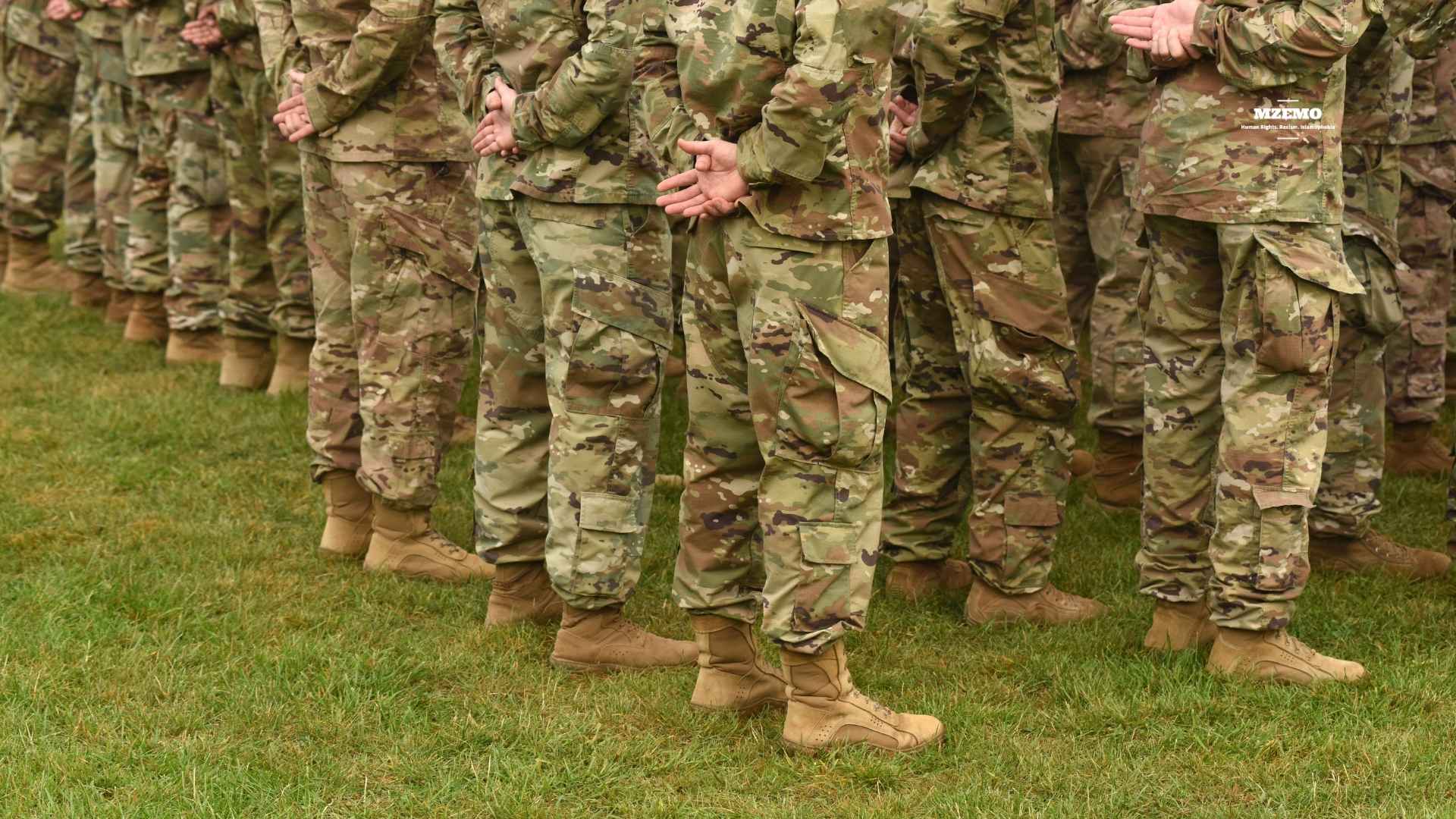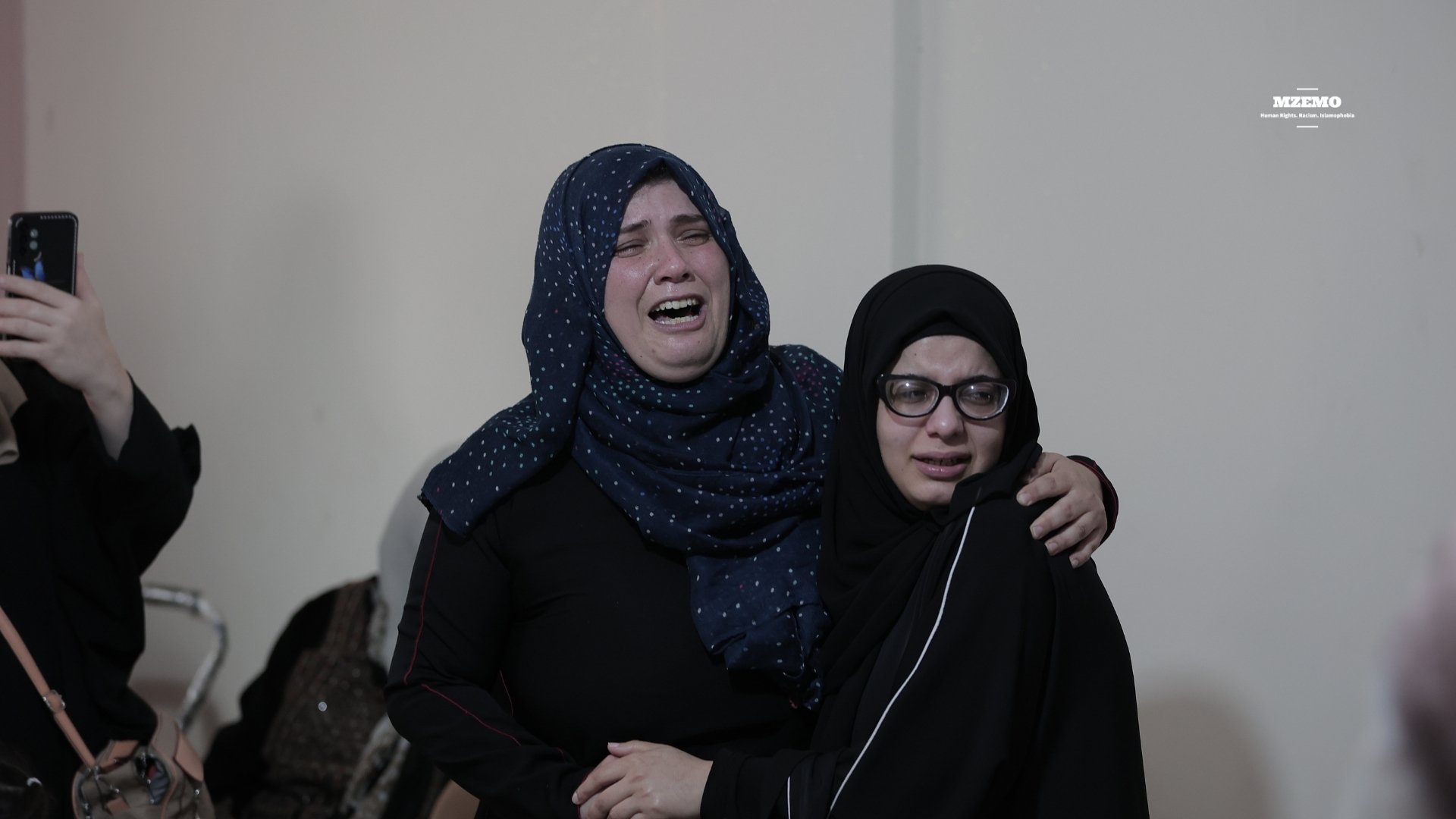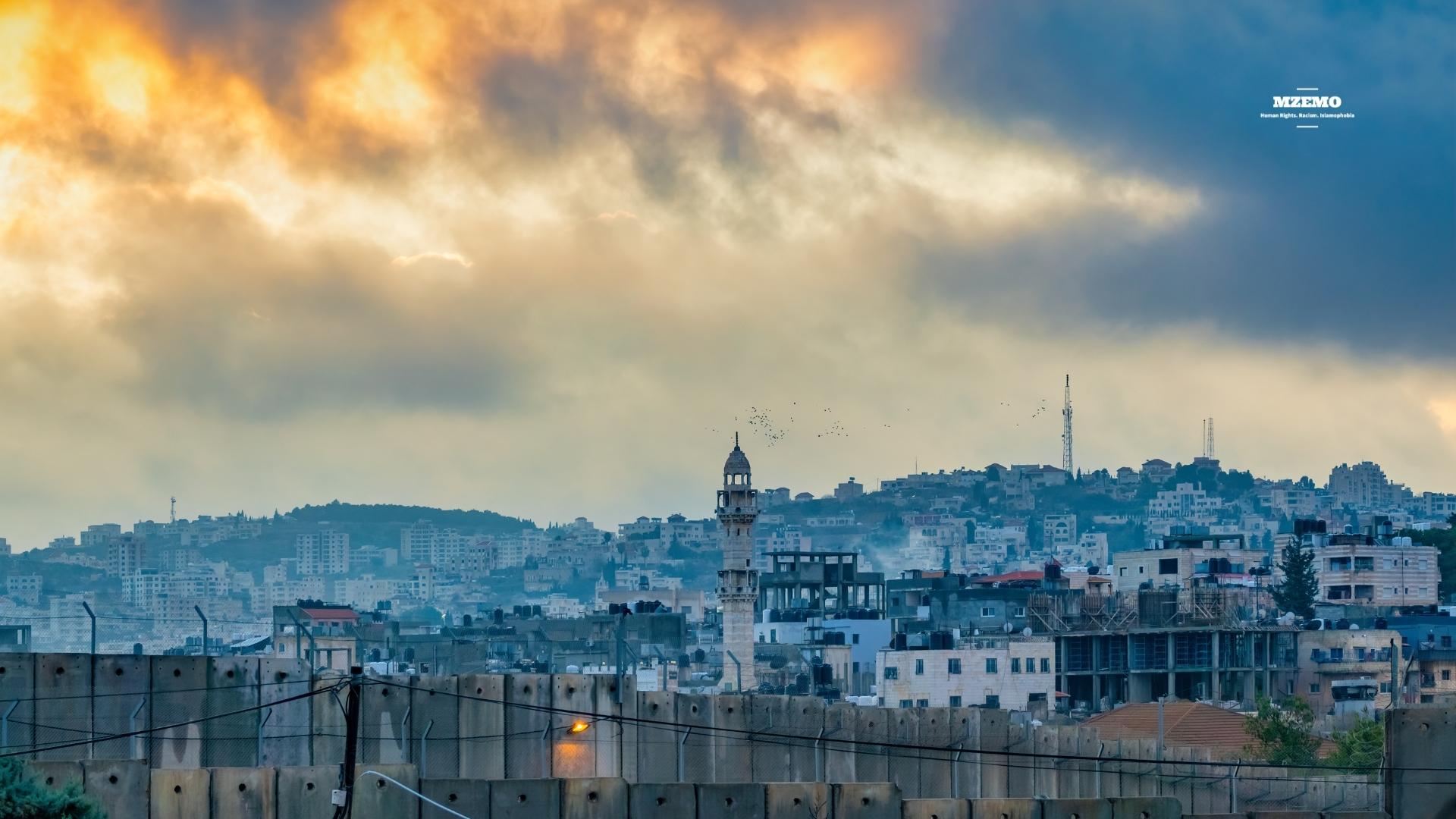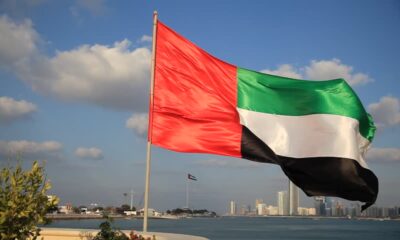In its rabid efforts to demonize Israel’s Palestinian victims, the Zionist propaganda machine, known as Hasbara, repeatedly cites a famous meeting between Palestinian national leader Hajj Amin Husseini, and German Führer Adolph Hitler in 1941, as an “indicting evidence” proving Palestinian collaboration with the Nazis. In fact, Zionist propagandists weaved and continue to weave all sorts of farfetched tales concerning that inconsequential meeting.
In fact, the Zionist machine of mendacity would go as far as claiming that the Palestinians bear a major share of responsibility for the Holocaust as a result of that meeting.
The real truth, however, is that such nefarious lies, though perfectly characteristic of the classical Zionist discourse, are knowingly used to mitigate the brutal ugliness of the ongoing Zionist holocaust against the Palestinian people.
Read also : Israel Has No Right to Exist if Palestine Has No Right to Exist
In fact, the vast majority of Palestinians in the 1930s and early 1940s, probably knew next to nothing about Germany. Palestine then was under the harsh British occupation, known as the mandate, whose ultimate goal was to prepare the country for the establishment of the malignant racist entity known as Israel.
Very few Palestinians visited Germany during that period, and, similarly, very few Germans visited Palestine, probably with the exception of a small number of orientalists, anthropologists, archaeologists and missionaries.
Hence, the claim that the Palestinians who were languishing under an British military occupation did have particularly friendly ties with the Germans can’t withstand academic scrutiny for two minutes.
Read Also : Moving British Embassy from Tel Aviv to Jerusalem is huge insult to 2 billion Muslims
Yes, most Palestinians hated their British occupiers who were actually devising one of the greatest crimes against humanity of all times against a simple, pastoral and unsophisticated peasant community.
We hated our British tormentors…and we still do
I don’t deny the possibility that many Palestinian nationalists of that time might have wished victory for Germany and defeat for the British. Such feelings are quite normal and natural, to say the very least. But to interpret the Palestinian anti-British feelings as support for the Holocaust would be tantamount to fornicating with the truth and historical facts.
Besides, the Zionist movement then, as now, had a big clout on British policy makers. Hence it was quite logical and expedient for Palestinian leaders of that time to seek support for their just cause from Britain’s main foe, namely Germany. This didn’t mean at all that the Palestinians backed or identified Germany’s racist Nazi ideology or, indeed, its purported plans to exterminate.
Zionism had good chemistry with the Nazis prior to the Holocaust
There is a preponderance of crucial data pertaining to Zionist collaboration and cooperation
With the Nazi leadership, although the Nazi anti-Semitism policy had been well-known since 1933. Yet the Zionists, either directly or otherwise, maintained an extensive though secret contacts with the Nazi authorities, though the Zionist aim beyond these contacts was mainly to expedite the Zionist scheme in Palestine, rather than save or free Jews from the genocidal clutches of German anti-Semitism.
In the context of these contacts between Zionists and the Nazi authorities, the Nazis showed a certain willingness to allow hundreds of thousands of Jews to emigrate to the U.S. and other countries in return for certain tactical concessions from the allied countries. This meant that hundreds of thousands of Jews could have been spared gas ovens and concentration camps had the German demands been met. But the Zionist movement, which exerted disproportionate influence on American and British leaders, especially in relation to Jewish issues, adamantly refused the German overtures, with some Zionist leaders arguing that 50,000 Jews going to Palestine were preferred to a million Jews allowed to emigrate to North America.
Jewish soldiers serving in German armies
According to some Jewish historians, thousands of Jewish soldiers served in the German armed forces, including the Wehrmacht, SS and the Gestapo. The Judenrate (Jewish councils) were administered at the low and medium levels buy Jewish officers. The late Israeli historian, Israel Shahak, pointed out that Jewish families in Nazi-occupied Eastern Europe feared Jewish soldiers manning Nazi-roadblocks more than they did German or other soldiers. The Jewish soldiers were especially harsh and brutal to their co-religionists, probably to impress their German superiors.
Read also: Even if a hundred holocausts were committed against Jews, it gives them no right to slaughter Palestinians and steal their homeland
Modern Zionist propagandists, even historians, strive to avoid or evade such embarrassing chapters of that era. They flatly deny that thousands of Jewish soldiers served in the Nazi armed forces, claiming that these soldiers were only partly Jewish and that most of them had Jewish fathers and non-Jewish mothers. In short, they employ the Same twisted arguments in dismissing this phenomenon as some ardent Zionists do in denying the presumed non-Semitic Origin of the bulk of Ashkenazi Jews.
I am speaking about prevarication, decontextualizing event, making sweeping generalizations out of rare or isolated events as well as indulging in sheer lies, while hurling the ant-Semitic scare-bomb at those disagreeing with the Zionist narrative, even if these people happened to be Jewish or even Holocaust survivors such Shahak and Zeev Sternhell.
Stalin’s Jewish aides
Although, Adolph Hitler is widely viewed as the most evil mass murderer in the history of mankind, it is probably safe to argue that Joseph Stalin was more nefarious a murder, given the huge number of his direct and indirect victims.
According to some estimates, Stalin was directly or indirectly responsible for the death of 6 million to 20 million people during his prolonged rule.
The huge number of victims occurred as a result of unrelenting political executions or indirectly as a result of Stalin’s policies such as the Gulags and other induced famines, collective deportations, and his sustained campaign of purges which lasted more than two decades.
Some of Stalin’s most diabolic crimes included the attempted physical liquidation of entire social classes, induced famines which caused the death of millions, the Gulags and the deportation of the Crimea Tatars and other ethnic peoples The Soviet authorities used cattle trains to deport these mostly Muslim peoples, mainly children, women and the elderly to Uzbek SSR and other remote destinations. Thousands died during the deportation journey while tens of thousands perished later due to the harsh exile.
Most Western historians evade or ignore the fact that many of these gigantic crimes were supervised and carried out by Stalin’s Jewish aides who directly reported to Stalin.
I know that very few people would venture to sale in these “uncharted waters” for fear of being accused of hostility to Jews.
None the less, Zionist Jews must realize that they are not exactly history’s angelic victims and that they do have much to be ashamed of.
Good chemistry between Israeli and fascist governments
Today, Israel, which claims to follow a principled policy against fascism and racism anywhere in the world, is maintaining close, even cordial working relations with fascist regimes and groups around the world.
Israel is maintaining close ties, bordering on actual alliance, with the BJP regime in India. Needless to say, this regime is deeply racist, scandalously Islamophobic and hopelessly fascist. It is a regime that upholds the racist mantra that “to be a true Indian, you must be a true Hindu and thoroughly anti-Islamic.” This mantra is an identical copy of the racist Israeli Nationalism Law which states that ” in order to be a complete citizen of the state of Israel, one must be Jewish.” It is also worth mentioning, that the Israeli domestic intelligence agency, the Shin Bet, has advised the Indian security apparatus to adopt some of the most vengeful measures used against Palestinians, and use these tactics against Indian Muslims. This includes the widely condemned practice of home demolition, which is already being used in some Indian states like Ultra-Pradesh.
In Europe, Israel has good ties with the new fascist regime in Italy, which has assured Zionist circles that Italian fascism would target Muslims, not Jews. Israel also has excellent ties with the quasi-fascist regime of Hungary.
Moreover, Israel has also had and continues to have warm relations with anti-Islam movements in Britain, Germany, France, Sweden and Netherland. These racist movements are disguised as anti-immigrant movements although Islam and Muslims are their ultimate target. A few years ago, Dutch far-right anti-Islam politician Geert wilders was invited to Israel where he was warmly welcomed by the Israel government. Wilders eventually converted to Islam to the chagrin of his former Zionist friends. His conversion to the religion he had hated most stunned Islamophobic and Zionist circles in Europe and Israel.
And in America, Israel has had cordial ties with Evangelical Zionists who support, soul and heart, Israel’s repression of the Palestinians, although some Zionist Jews don’t hesitate to call Jesus Christ “the Hitler of Bethlehem.”
The same thing can be said about every fascist leader under the sun, who is usually courted by Israel and encouraged to pursue his or her anti-Islam discourse.
Conclusion:
So, the next time you hear or watch a Zionist spokesperson accuse the Palestinians of collaborating with the Nazis, you should immediately realize that you are encountering a sly liar. In the final analysis, Israel itself is now considered one of the world’s main hotbeds of fascism, especially after recent elections which brought to the fore Nazi-like parties which consider non-Jews lesser or infra human beings. Don’t be bamboozled by their lies. Such values as truth, honesty and justice don’t exist in the unholy Bible of Zionism
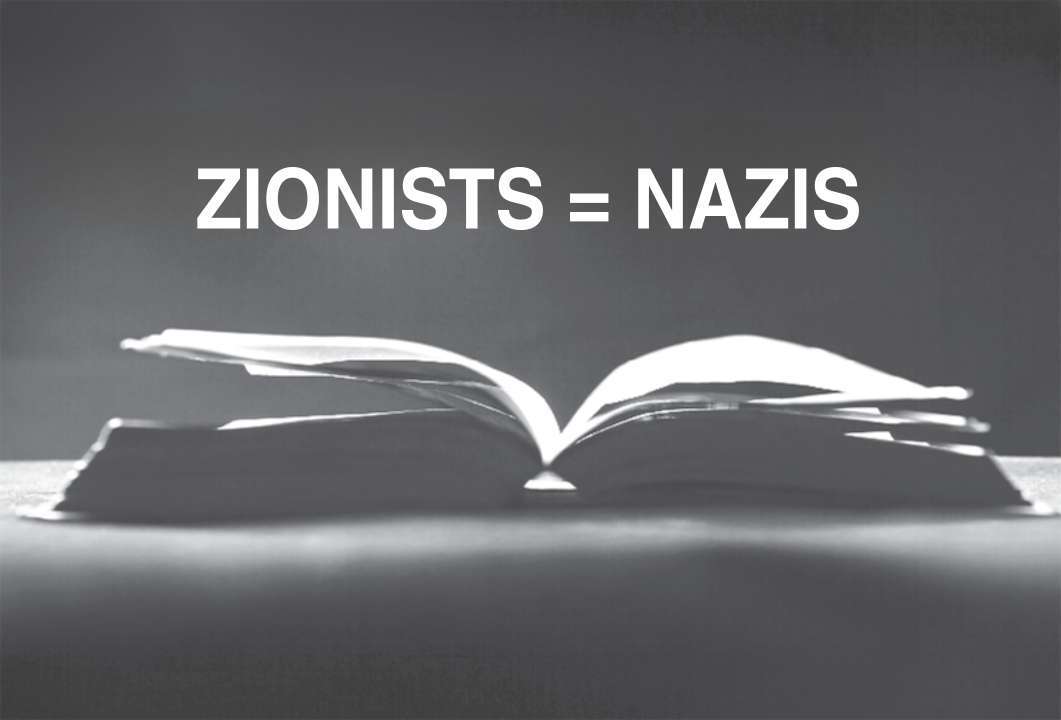

 Featured2 years ago
Featured2 years ago
 Featured3 years ago
Featured3 years ago
 Featured2 years ago
Featured2 years ago
 Featured4 years ago
Featured4 years ago
 Featured3 years ago
Featured3 years ago
 Featured5 years ago
Featured5 years ago
 Featured2 years ago
Featured2 years ago
 Featured3 years ago
Featured3 years ago
